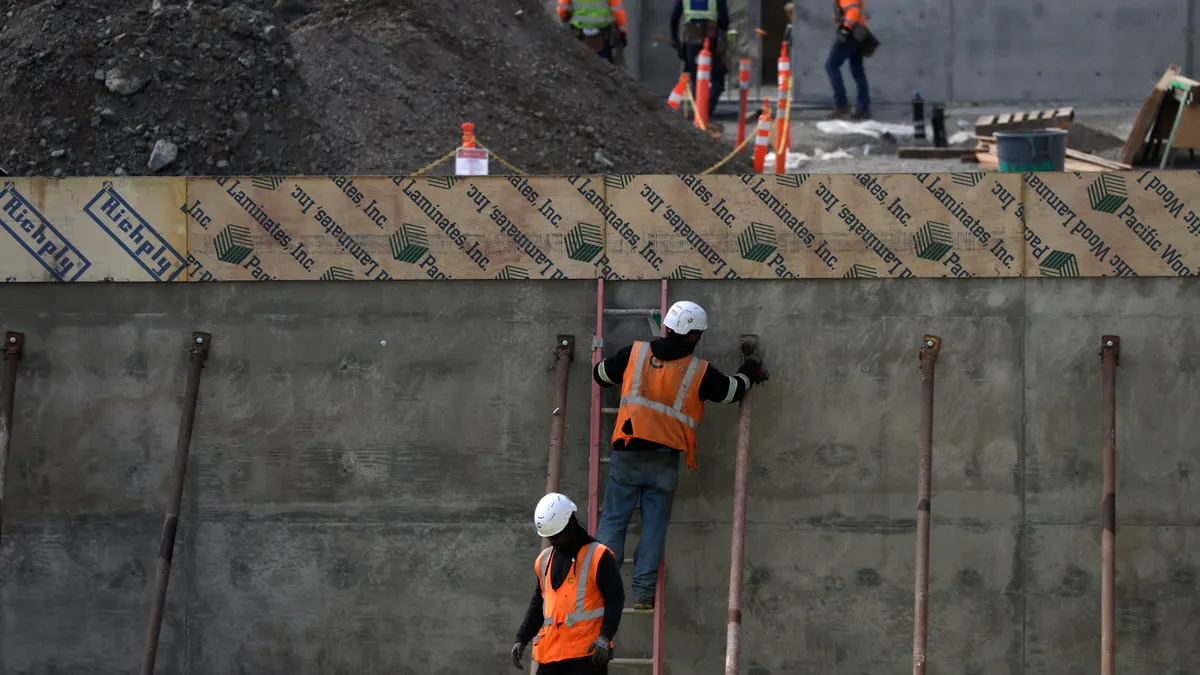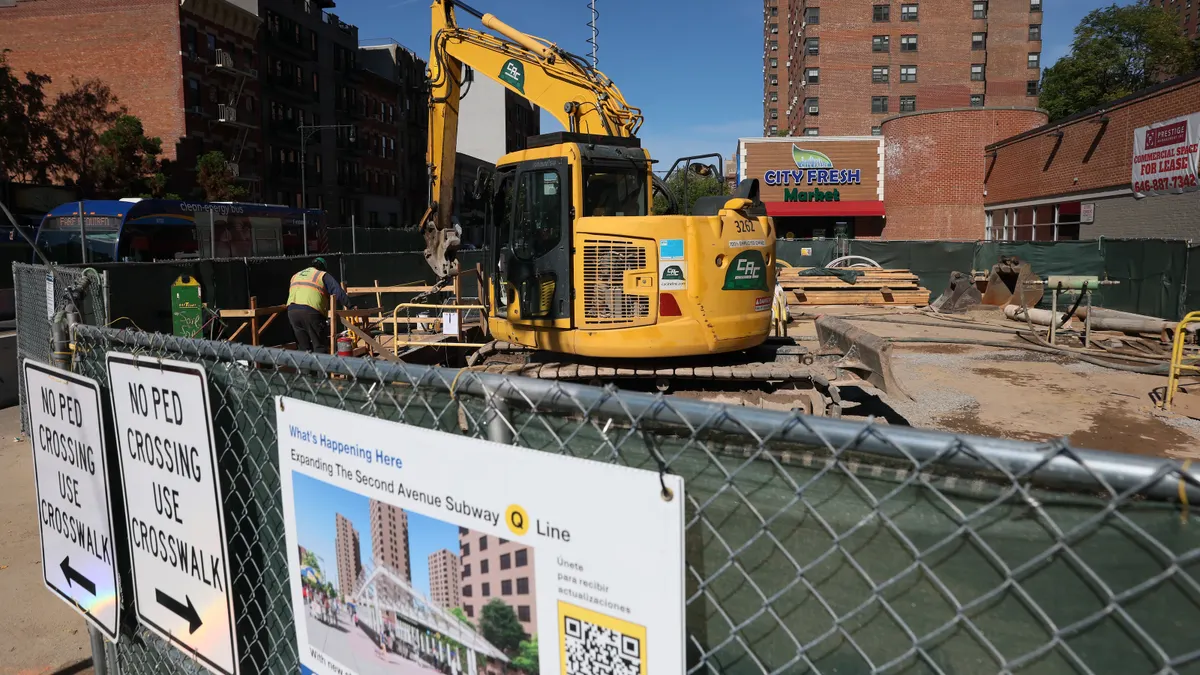A healthy flow of cash is important to contractors, even when there’s not a global pandemic. But now that the spread of the coronavirus has resulted in mandatory project shutdowns in many states, a trade workforce that is scared to show up and skittish owners that have halted or stalled developments, there are steps financial experts say contractors and subcontractors need to take right now to protect their money and maximize cash.
Collect money due
The first order of business for contractors, said Scott Wolfe, CEO at Levelset, is to collect outstanding invoices.
If the customer is slow to pay, Wolfe said, contractors should seriously consider securing accounts receivable with a lien. Granted, there are contractors with great client relationships, and if payments haven’t slowed down, they might not feel comfortable taking what some in the industry view as a drastic measure. But, he added, “If there’s a chink in the armor, you want to get your lien filed because you need to be in a position to be paid in a very uncertain environment.”
In some states like Iowa, liens are paid according to the order in which they are filed, so don't delay the filing if you think you could have trouble collecting money due, Wolfe said.
Nevertheless, some states have an extensive list of notice requirements that must be met before a contractor can file a valid mechanics lien, and firms that have not taken these steps might find themselves out of luck and without the money owed to them. Moving forward, contractors should ensure that they follow the notice requirements in the project’s home state so that they have lien rights in the future, experts say.
Contact lenders
For contractors that maintain a line of credit, it’s time to speak to lenders and reassure them, as long as they can do so honestly, experts agree.
“We all know the conundrum right now is that lenders are getting jittery, and [they] are going to be more concerned about financing cash flow and projects because there’s really no transparency on how long this [pandemic] could go,” said Nick Giacoumakis, president and founder of New England Investment & Retirement Group Inc.
However, he said, contractors with good, traditional bank relationships should make sure that their lenders will be able to extend existing credit lines in order to prevent an interruption in their ability to meet their financial obligations.
Contractors that expect to draw down on existing facilities, said Carl Oliveri, partner and construction practice leader at New York City accounting and consulting firm Grassi & Co., should also talk to their bankers to ensure that those credit limits won’t be reduced. “[Make sure] that your bank is still going to be a strategic partner through this [pandemic],” he said.
One way to instill extra confidence in lenders, Oliveri said, is for owners to invest money in the business. “Credit providers want to make sure if they have skin in the game, that the owners have skin in the game.”
One new forgivable-loan program, the Small Business Administration’s Paycheck Protection Program (PPP), ran out of its initial $349 billion in funding. The Senate, according to The Washington Post, reached a tentative deal Tuesday to add $310 billion to the program, and the House is expected to approve the measure Thursday.
On a positive note, Giacoumakis said, several of his construction clients that applied for PPP loans at the beginning of the month are set to receive their money this week, despite some reported difficulties with the process and application system. PPP loans are being processes through banks.
“Smaller banks have been quicker to get approval because they didn't have 20,000 or 30,000 or 40,000 clients to process,” he said. “If you look at the large, multinational banks, those are the ones that really choked on this because they just were not prepared to get hit by that kind of application tsunami.”
The fact that the construction industry is leading in PPP applications, Oliveri said, should be no surprise since labor is such a huge expense.
Another source of cash that contractors might be able to tap is business interruption insurance, Oliveri said. These policies are supposed to pay out when a disaster strikes and prevents a company from engaging in business as usual, unless they include a pandemic exclusion.
Contractors should also look at the possibility of refinancing assets and investing the equity back into the business, the experts suggest.
Two other types of financing that are a bit off the traditional path are collateralized brokerage account loans, as well as outside investors and lenders. If the contractor, likely a large one, has a brokerage account, it can borrow an average of 40% to 60% against total funds, pay very little interest and have the money in hand in as little as a day, Giacoumakis said. Contractors will pay higher interest on "hard money," typically high-interest short-term loans, and other private loans, he added.
Communicate with customers and suppliers
Suppliers will sometimes extend terms, Wolfe said, particularly for good customers, meaning that the burden of paying those bills is not as immediate. That gives contractors more cash, at least in the short term.
Contractors should be having candid conversations with their customers as well. Depending on the level of trust, owners and general contractors might be able to expedite payment to a company in need, he said.
This kind of arrangement could not only help with a short-term cash crunch but also when it is time for contractors to ramp up work when construction moves forward post-pandemic, he added.
Do the math
Determining how much cash is needed is a critical step, Oliveri said. To that end, he said contractors need to start doing some forecasting, in conjunction with their financial advisers if they have ones.
An 18- to 24-month look ahead is the ideal forecast period, Oliveri said, because that coincides with the lifecycles of many construction projects. The cash flow forecast for each project should then be rolled into a companywide forecast that includes general overhead.
As part of that analysis, he said, contractors have the opportunity to eliminate redundant positions and make other cost-cutting measures — services or items that the company can function without. “This is the opportunity to do real-time budgeting,” he said.
There is a lot of stress right now on contractors, Wolfe said, who already deal with slow payments in the course of normal business. The stress of the coronavirus fallout will add to the tension.
“There's going to be an increase in [contractors] filing bankruptcy, going out of business. having … cashflow challenges,” he said. “That means that on a [single] job, a higher percentage of parties are going to have trouble, and that's going to impact you even if you don't have any trouble. All these things come into play.”




















